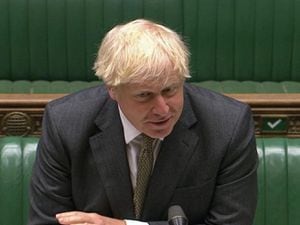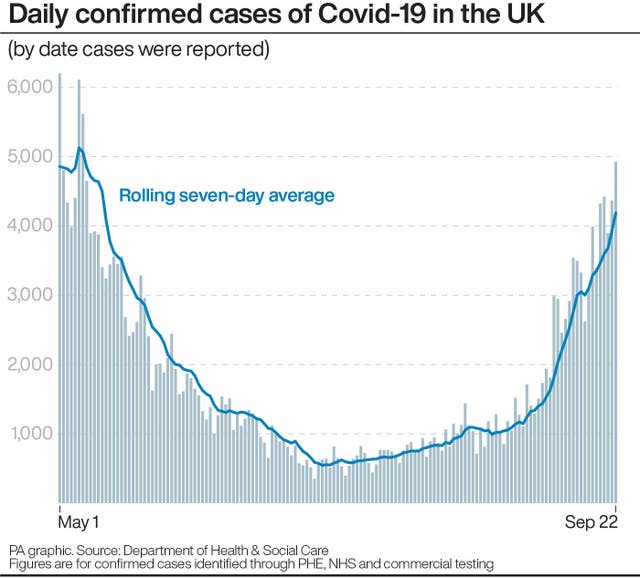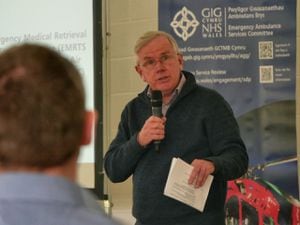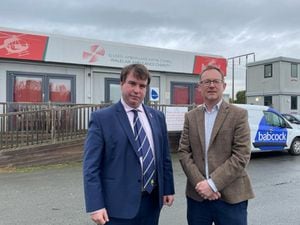Johnson under pressure over economic impact of new coronavirus restrictions
With the prospect of another six months of curbs, the Prime Minister faced calls to provide more assistance for firms and workers.

Boris Johnson promised “creative and imaginative” action to protect jobs as he faced calls for a fresh economic rescue package after unveiling new coronavirus restrictions.
The damage to the economy could increase if tougher measures are needed, with ministers warning a second lockdown could be required if the new rules are flouted.
And a member of the Government’s scientific advisory group for emergencies (Sage) warned that tighter curbs may be required in any event as the existing measures do not go “anywhere near far enough” to bring coronavirus under control.
At Prime Minister’s Questions, Mr Johnson was repeatedly challenged about the looming prospect of support being withdrawn from firms and workers despite the prospect of the latest restrictions being in place for six months.
The furlough scheme, which has cost the Government £39.3 billion to date, expires at the end of October.
“What we will do is continue to put our arms around the people of this country going through a very tough time and come up with the appropriate creative and imaginative schemes to keep them in work and keep the economy moving,” he said.
Labour leader Sir Keir Starmer asked “when is the Prime Minister finally going to act” in the face of calls from Bank of England governor Andrew Bailey, the Confederation of British Industry and trade unions to continue some form of support after furlough ends.
Chancellor Rishi Sunak is reportedly working on a new German-style scheme to avoid mass unemployment once furlough ends, with the Government and firms sharing the cost of topping up wages for employees only able to work part-time due to the pandemic.
Mr Johnson said: “These are indeed tough times and I have no doubt that many businesses, many employees are feeling a great deal of anxiety and uncertainty and we will do our level best to protect them throughout this period.”
The Prime Minister hopes that the measures announced for England on Tuesday – including a call for office staff to work from home, a 10pm curfew for pubs and restaurants and the wider use of face coverings – will avoid the need for tougher interventions such as a second lockdown.
In Scotland, First Minister Nicola Sturgeon went further, imposing a ban on household visits.
But Professor John Edmunds, a member of the Government’s Scientific Advisory Group for Emergencies (Sage), said while it is welcome ministers have “done something”, the curfew on bars and restaurants is likely to have a “trivial” effect.
He told BBC Radio 4’s Today programme: “Overall I don’t think that the measures have gone anywhere near far enough. In fact I don’t even think the measures in Scotland have gone far enough.”
The new strategy for England was announced six months after the first lockdown was introduced in March.
Prof Edmunds, speaking in a personal capacity, said action was not taken quickly enough then, and that “mistake” is about to be repeated.
He warned: “I suspect we will see very stringent measures coming in place throughout the UK at some point, but it will be too late again.”
Another Government adviser suggested that a ban on households mixing indoors in England “may well be coming very soon”.

Professor Peter Openshaw of Imperial College, a member of the new and emerging respiratory virus threats advisory group (Nervtag), told BBC Radio 5 Live: “I would think if we wait two or three weeks, it will be too late. It ought to be instituted sooner rather than later.”
Foreign Secretary Dominic Raab insisted the UK Government’s approach is “focused, balanced and proportionate”.
He told Sky News: “Let’s hope that we can get through the winter months if we take these measures and if everyone plays by the rules, and we go into Christmas not needing to go into that national lockdown with all the impact on society and families but also the damage it would do to businesses.”
He said if further measures are required, they will be “more intrusive or we could end up in a national lockdown”, and added: “That is what we want to avoid.”
The number of confirmed coronavirus cases in the UK has now passed 400,000, with a further 4,926 lab-confirmed cases as of 9am on Tuesday.
A further 37 people died within 28 days of testing positive for Covid-19 as of Tuesday.





